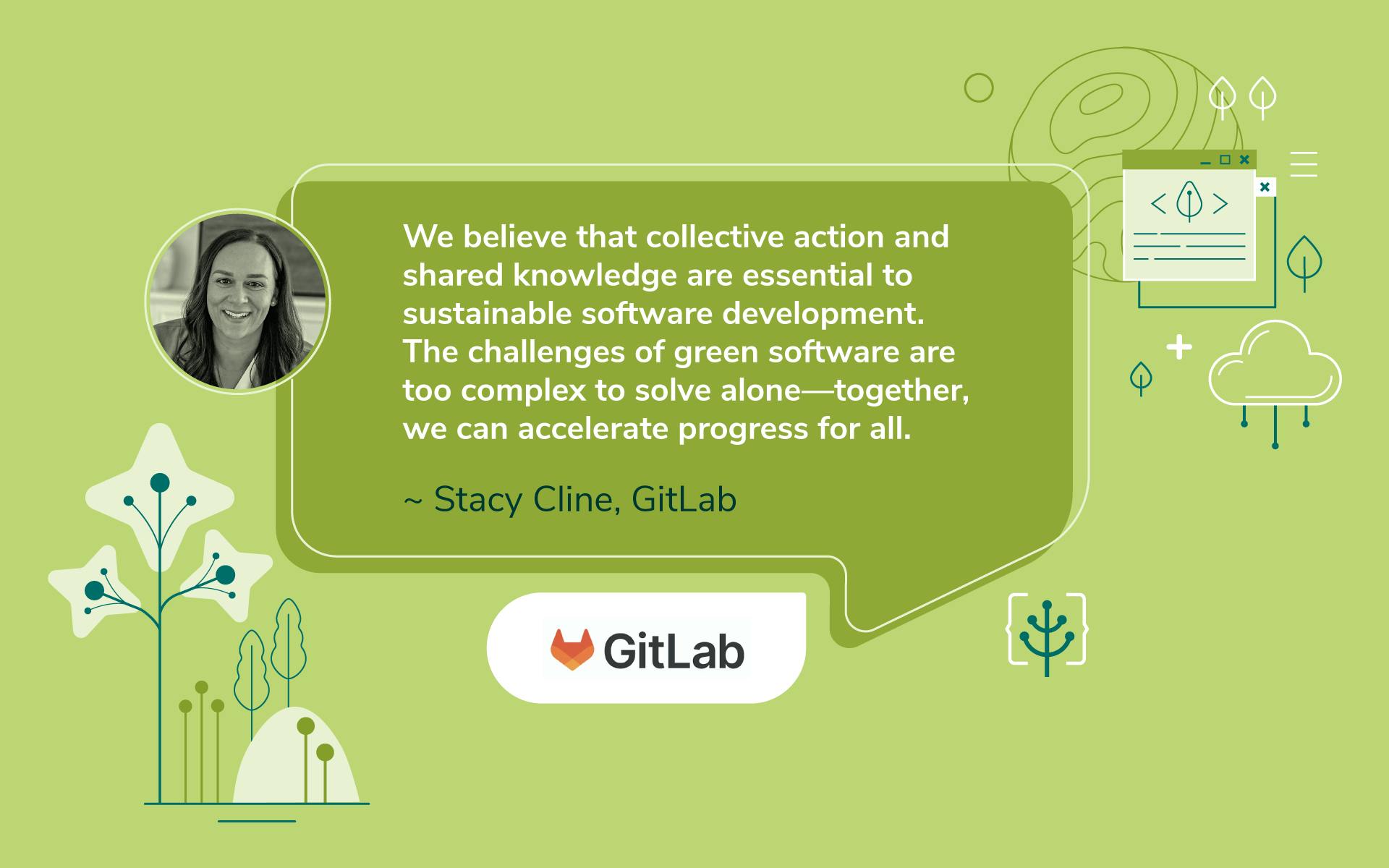Stacy joined GitLab as Sustainability Director to establish the sustainability department and has been leading it ever since.
Can you tell us more about GitLab?
GitLab is a comprehensive and intelligent DevSecOps platform. It is trusted by over 50 million registered users and over 50% of the Fortune 100 to ship secure software fast. Since our inception, we’ve been an all-remote company, and our core values are collaboration, efficiency, diversity, inclusion, customer results, belonging, iteration, and transparency.
The Sustainability function at GitLab encompasses two primary areas: ESG compliance and reporting, including sustainability-related stakeholder communication and regulatory reporting, and social impact. The latter includes our climate action program, team member volunteerism, and engagement with nonprofits through both monetary and in-kind donations.
How does sustainability manifest in your organization?
Officially, sustainability is a relatively new function at GitLab, but its aspects have long been woven into our DNA through our values and remote-first culture. As our business has matured, so have our sustainability commitments, policies, and practices.
This is demonstrated in various ways, from our programs to team-driven initiatives. Before creating the sustainability department, GitLab team members had already launched several initiatives, including a Slack group to help incorporate sustainability in daily activities and carbon offsetting support. We've built on that momentum and developed programs focused on measuring carbon emissions, team member education, and integrating environmental considerations into our decision-making processes.
Why did you join the GSF?
Sustainable software development requires collective action and shared knowledge. As the use of AI and cloud technologies rapidly expands, the environmental impact of software is growing. We want to help address this challenge, and joining the GSF reinforces our aim of doing it well.
We're excited to contribute to GSF's work on AI sustainability standards and learn from the community's approach to measuring and reducing software-related emissions. We also see tremendous value in GSF's Software Carbon Intensity (SCI) specification and hope to contribute our learnings, collectively building and distributing measurement standards to help organizations worldwide in their green software journey.
The GSF is the leading voice in this space, and being part of the community is crucial for all of us who want to advance green software.
Are there any other sustainability initiatives that you can share?
We continue to evolve and deepen our climate action program, which is focused on four pillars: Measure, Act, Engage, and Accelerate. We have identified the efforts that matter to us and our stakeholders and where we can have the most impact.
GitLab has always been fully remote, and we recognize the importance of accounting for our Scope 3 emissions generated by our team in our overall footprint. Our Engage pillar educates and involves GitLab team members in sustainability initiatives, focusing on remote working.
For example, this past Earth Month, we launched a partnership with Mammoth Climate, a climate literacy platform. Throughout April, our team members engaged with educational materials, calculated their carbon footprint, and learned about GitLab's sustainability work while competing for sustainable prizes and rewards. We achieved such positive results that we extended access to the platform for the entire year, allowing our team to continue learning how to take sustainability action.
How do you hope to contribute to and benefit from the GSF?
We're eager to share our approach to measuring and reducing emissions while building internal education and support around green software.
As AI becomes increasingly central to software development, our aim is to collaborate with the GSF community to establish best practices that harness the potential of technology while minimizing its environmental impact.
As we learn from the experiences of other GSF members, we want to deepen our understanding of the SCI specification, contribute to developing industry standards, and collaborate on tools that make sustainable software a norm across global organizations.
We believe that the GSF is an excellent forum for collective innovation and shared accountability. The challenges of green software are far too complex for a single organization to solve alone, and only by working together can we accelerate progress for everyone.
This article is licenced under Creative Commons (CC BY 4.0)
